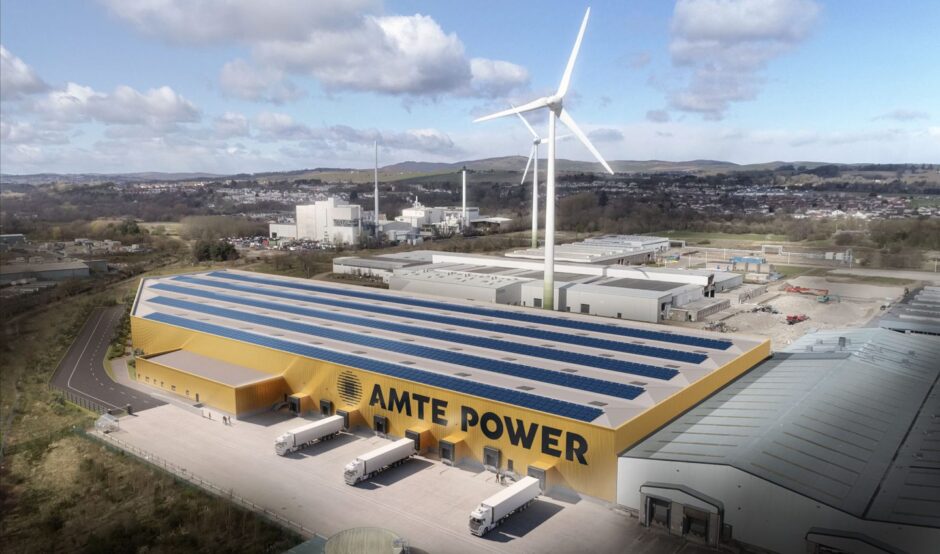Humankind is at a critical juncture; arguably even the watershed of its existence. If we don’t claw back and rectify the damage to the lump of rock that is our forever home then we will pay the ultimate price.
Like every Hollywood disaster movie, there would be survivors and their mission would be to restore a terribly disfigured world.
The late and great astronomer Carl Sagan wrote in his prescient book Cosmos: “The dangers of not thinking clearly are much greater now than ever before. It’s not that there’s something new in our way of thinking – it’s that credulous and confused thinking can be much more lethal in ways it was never before.”
Cosmos was published in 1980, just a few years after the final US Apollo mission to the moon and amid growing realisation that not all was well on planet Earth.
We live in hugely dangerous times and have been repeatedly warned by our scientists that we must admit and restore anthropogenic climate change. So far we’re not doing very well as a string of COP conventions attest.
How we handle energy going forward is fundamental to that recovery but understanding acceptance and real universal action remain a problem with targets repeatedly missed and watered down.
Go hunt around the world wide web and one discovers huge variance in how countries around our globe are handling the crisis. Denial is commonplace.
Charting global climate progress
Ever heard of the Climate Change Performance Index? Germanwatch, the New Climate Institute and the Climate Action Network have published the CCPI annually since 2005.
It currently evaluates 63 countries and the European Union on their climate progress and policy.
Published in late 2023, the 2024 index rates each country on a 100-point scale tied to their performance in four categories: greenhouse gas emissions, renewable energy, energy use and climate policy, with emissions carrying the highest weight at 40%, to the others’ 20%.
The top 10 performers were: Denmark, Estonia, Philippines, India, Netherlands, Morocco, Sweden, Chile, Norway and Portugal. The UK is ranked 20th, while neighbour France is 37th.
The world’s largest oil producers are basically bottom of the heap.
The US is 47th and classed as “very poor”. Canada is ranked 62, Russia 63 and Saudi Arabia 67. Despite their massive dirty coal commitments, Australia is in slot 50 and China 51.
It turns out that not even Norway is faring as well as one might expect and UK targets have suffered as a result of political expediencies.
Remember, every country is supposed to balance their carbon book and achieve Net Zero by 2050.
Here in Scotland, we are currently digesting the very recent news that our 75% by 2030 target has been dumped and split the ruling SNP-Scottish Green Party coalition.
Global climate views at ‘sixes and sevens’
All of this can only confuse the public. It seems many of us are at sixes and sevens as to what energy transition means and our politicians and the climate, environment and energy consultants who supposedly guide themselves struggle to define viable solutions. Expediency dogs attempt at remediation.
Whether in the UK or elsewhere, most people are struggling to survive. Poor education, junk diet, sub-standard expensive accommodation, soap and crime drama saturated TV and self-serving politicians are their lot.
This in turn impacts their understanding though many are aware that we are in trouble. Here in the UK, should the aware protest, they risk fines, jail and sacking at the hands of a neo-fascist government.
Those of us who are well educated are in a better position to understand the emergency, but even they struggle when it comes to objectivity.
This comes through in the recently completed EU-funded Peritia project designed to measure public perceptions regarding climate change.
The survey was conducted in the UK, Ireland, Norway, Poland, Italy and Germany. Average country sample size was around 2,000 people and apparently statistically acceptable. The UK sample equated to 0.0033% of the 60 million population.
Here are some sample findings.
In the UK, the average estimate on whether climate scientists have concluded that human-caused climate change is happening is 65%. In reality, 99.9% of climate scientists have reached this conclusion.
Of the six countries, people in the UK are the furthest away from having an accurate perception on this issue, it seems.
In the UK, younger people are less likely to think climate scientists agree that the increase in global temperatures is caused by human activity, with 67% of 18–34 year olds believing this. In contrast, 77% of people aged 55+ think this is the case.
71% of people who voted Conservative in the 2019 general election agree, compared with 76% of Labour and 79% of Liberal Democrat voters.
On the often claimed allegation that oil companies have been suppressing low-carbon energy solutions advances the reactions varied significantly.
In Italy, 53% think that Big Oil is hiding technology that could for example make cars run without petrol or diesel. In the UK it was 44% plus a third said they didn’t know.
In Germany, Ireland and Poland the perception is similar. In contrast, 29% of people in Norway think this. Norway is the only country where more people think this is false (35%) rather than true.
As to whether climate change will harm them personally, 53% of the people surveyed think it will inflict damage personally now or within the next 10 years.
In Poland, 41% think climate change is causing harm to them personally, now. In the UK it is 25% and just 16% for Norway.
Indeed, in the UK, 13% think that climate change will never harm them personally. This rises to 17% in Norway.
In the UK, 39% think that climate change is harming their country right now, whilst a further 19% say it will within the next 10 years.
A quarter of people in the UK and Ireland don’t know what they can do to help prevent climate change.
In the UK, 22% of people, and in Ireland, 25% of people, disagree that they know what they can do to help prevent climate change because there is clear guidance on what the public can do.
However, 47% in the UK and Ireland say that they do know what they can do.
UK jobs fear around transition as unions prepare to make their own plans
Before closing, here is the briefest of snapshots of how Scotland is trying to cope on the energy front via its Just Transition Commission through the eyes of Jake Molloy, a former offshore worker turned prominent energy industries trade unionist and who is a member of the Commission.
Molloy is deeply worried that the supposedly managed switch from oil and gas production to low carbon power generation – primarily wind – is neither delivering credible supply chain opportunities or jobs.
And high quality low-carbon energy jobs in abundance have been touted by politicians and companies; but so far turned out to be a chimera.
He sees little if any genuine progress on the hydrogen front with blatant, misguided opposition from the Scottish Greens.
As for large-scale lithium battery manufacturing, he cites the high profile late 2023 failure in Dundee of AMTE Power. It had promised to make eight million Li-on and Sodium-ion cells a year at a £190m factory in the city, creating 215 jobs at the plant plus 800 more in the supply chain.
Molloy is angry at how little local Big Wind supply chain spin-off has been generated by UK/Scottish projects to date and that foreign inward investment and placing orders overseas is not the way to go.
He says oil and gas workers looking to transition to low-carbon jobs have become cynical about promises made by corporations, agencies and government.
While communities hoping to harvest decent benefits as a result of hosting low-carbon energy ventures are feeling short-changed.
Referring to recent Just Transition research at Aberdeen University he says: “It’s not good reading in terms of physical outcomes to date and in the future, especially manufacturing leading to new jobs. This is especially true in Scotland; the situation is a bit better on the East Coast of England.
“Here it’s almost as if we’re going into reverse! For Dundee the battery venture represented a new beginning, but it was snatched away before it even got off the ground.
“And (oil and gas) workers are becoming cynical about the concept of a just transition. I get grief on a daily basis from workers about the role of the Commission and what the unions are actually doing.
“It’s got to the point that the STUC is now so frustrated that it is looking at drawing up its own energy transition industrial strategy. But there are (inter-union) factional issues/ideologies getting in the way and they don’t have a plan.”
In fact, Molloy is dubious that Scotland has a properly engineered, workable low carbon manufacturing plan at all.
Little wonder the workers and their families and the communities where they live are becoming so doubtful about the very idea of a just energy transition, let alone the wider population of Scotland.
Recommended for you



 © Supplied by AMTE Power
© Supplied by AMTE Power






